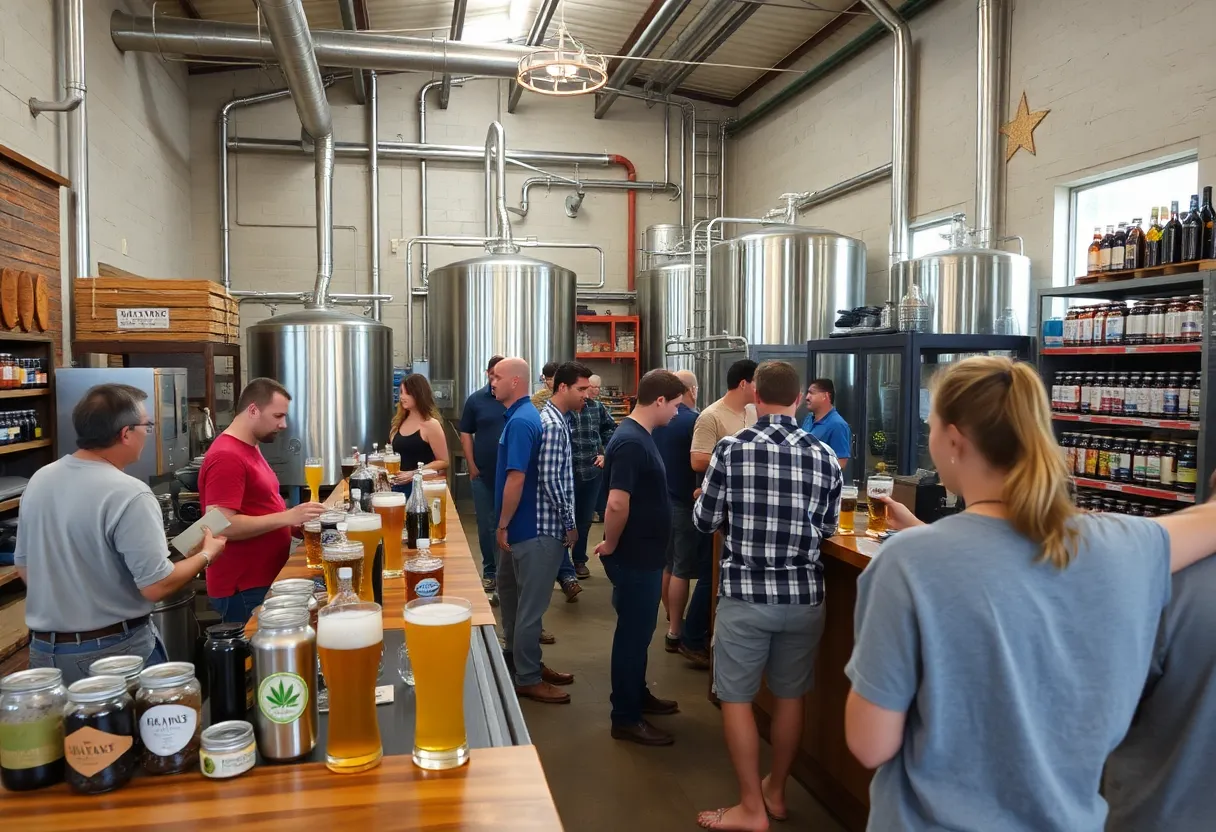News Summary
Georgia’s beer industry is grappling with a significant decline in sales as the market for hemp-based beverages surges. Following a boom during the pandemic, beer sales have plummeted, raising concerns for local breweries that relied on steady patronage. Lawmakers are attempting to support the beer industry with new legislation, but shifting consumer preferences and regulatory challenges in the hemp sector complicate the landscape. As the hemp beverage market expands, experts suggest it could surpass traditional craft beer, prompting breweries to pivot their focus towards this emerging industry.
Atlanta, Georgia – Georgia’s longstanding love for beer is facing significant challenges as its beer industry suffers a decline, coinciding with the burgeoning market for hemp-based beverages. Following a period of growth during the pandemic, beer sales have sharply dropped post-pandemic, with fiscal year 2023 highlighting these troubling trends.
Nationally and across Georgia, beer sales have turned negative after restrictions were lifted, affecting many small breweries that relied heavily on loyal local patronage. Beer taxes once served as a major source of revenue for the state, contributing to two-fifths of Georgia’s alcohol beverage tax revenue, which had been gradually increasing at about one percent per year prior to the pandemic. Interestingly, the pandemic initially boosted beer tax revenue, which saw a 4% increase in fiscal year 2020 and surged by nearly 10% the following year. However, since the easing of health restrictions, the expected bounce back failed to materialize, leaving many breweries closing their doors permanently.
In response to the troubling decline in beer sales, lawmakers introduced the Georgia Craft Brewery Innovation and Survival Act to support local breweries. However, industry experts identify multiple reasons behind the shift from traditional beer to hemp beverages, including a post-pandemic hangover, generational changes in consumption patterns, rising production costs, and increased public concern regarding alcohol toxicity.
The Rise of Hemp Beverages
According to investors, hemp beverages present a lucrative opportunity that may one day surpass craft beer in popularity. The global market for hemp beverages is on the rise, valued at approximately $1.16 billion in 2023, with an anticipated annual growth rate of 19.2% through 2030. Major markets for hemp beverages include the U.S., Canada, and Europe, with particular interest in Germany, which has recently moved to legalize cannabis.
Though cannabis remains illegal in Georgia, hemp falls under the purview of the Agriculture Improvement Act of 2018, allowing products with THC content of 0.3% or lower. This legal framework has led to a regulated environment for hemp products, resulting in an increased variety of offerings in retail outlets. However, concerns about safety and quality have emerged, especially as some firms rushed to flood the market with high-THC products before stricter regulations took effect in October 2022.
Regulatory Challenges and Future Outlook
The regulatory landscape surrounding hemp products in Georgia has become contentious, with lawmakers considering a summer study to assess safety and taxation issues linked to the hemp industry. Recently approved bills imposed stricter regulations, raising anxiety levels among business owners about potential effects on the hemp market. There is ongoing debate within political circles regarding whether to restrict or ban hemp products such as THC-infused beverages, complicating future business plans.
Industry analysts suggest that the potential tax revenue generated from hemp has captured lawmakers’ attention. This comes as companies pivot their focus to hemp-based beverages for new revenue streams. For instance, Scofflaw Brewing’s co-founder is steering his company towards the hemp beverage market, indicating a shift in strategy among local breweries.
The Road Ahead
As the state formulates its approach to hemp and cannabis regulations, the Hemp Beverage Alliance remains optimistic about Georgia’s potential to become a significant player in the hemp market, comparing its prospects to those of Minnesota. As proposed legislation develops that could allow the sale of THC drinks in liquor stores, the industry stands at a crossroads, balancing the need for public safety against the demand for economic growth.
As the discussion around hemp product regulation continues, industry stakeholders and lawmakers face the critical challenge of navigating these competing interests, all while addressing the evolving preferences of consumers in a post-pandemic landscape.
Deeper Dive: News & Info About This Topic
- Online Athens: Georgia’s beer sales decline and hemp drinks
- WSB TV: Hemp-infused drinks legislation in Georgia
- Fox 5 Atlanta: Georgia’s hemp product restrictions
- Wikipedia: Hemp
- AJC: Proposed THC drink ban in Georgia
- Google Search: Hemp beverages Georgia
- Georgia Recorder: Bills to limit THC content
- Encyclopedia Britannica: Cannabis
- Seven Fifty Daily: Cannabis drinks retail regulations
- Google News: Georgia craft breweries

Author: STAFF HERE AUGUSTA WRITER
The AUGUSTA STAFF WRITER represents the experienced team at HEREAugusta.com, your go-to source for actionable local news and information in Augusta, Richmond County, and beyond. Specializing in "news you can use," we cover essential topics like product reviews for personal and business needs, local business directories, politics, real estate trends, neighborhood insights, and state news affecting the area—with deep expertise drawn from years of dedicated reporting and strong community input, including local press releases and business updates. We deliver top reporting on high-value events such as Arts in the Heart Festival, Westobou Festival, and Masters Week. Our coverage extends to key organizations like the Augusta Metro Chamber of Commerce and Greater Augusta Arts Council, plus leading businesses in manufacturing and healthcare that power the local economy such as Textron Specialized Vehicles, Cardinal Health, and Nutrien. As part of the broader HERE network, including HEREAtlanta.com and HERESavannah.com, we provide comprehensive, credible insights into Georgia's dynamic landscape.


